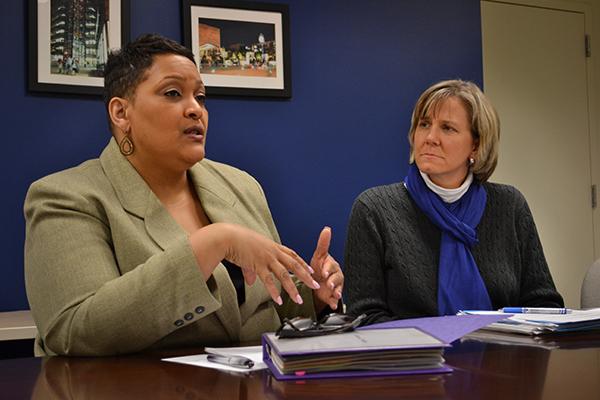Admissions recruiters are spreading out across the globe.
Starting this fall, GW’s entire 18-person admissions office is being tasked with “recruiting the world,” instead of leaving international recruitment to just a few, said Senior Associate Provost for Enrollment Management Laurie Koehler. That added focus could play into the University’s goal of doubling its international student population over the next decade.
“Now everyone who recruits has an international territory of sorts. We believe that will allow people to pay more attention to specific countries,” Koehler said. “We think by spreading it out, we can start to move the bar even further.”
Koehler said the admissions office will target Korea, Latin America and the Middle East. About 9 percent of undergraduate students hail from other countries, with nearly 270 undergraduates coming from China last year.
Because the office can’t send staff members to every country, Koehler said GW is trying other tactics to attract students through social media and its website. She said admissions creates lists of potential students based on standardized test scores to help focus recruitment.
“Travel is one piece of a broader recruitment. Someone might have a country and it may be a country we’re not going to travel to, but they’re responsible for thinking about how we might recruit,” Koehler said.
[RLBox]
[RL articlelink=”https://www.gwhatchet.com/2013/06/09/news-china/”]
[/RLBox]
For example, Director of Admissions Karen Felton is now in charge of recruiting students from seven countries outside the U.S., including Bhutan, Mongolia and Sri Lanka.
Felton said GW’s virtual campus tour, which launched last spring, has helped with international recruiting because it gives students a sense of what campus is like.
“Recruiting a class is about identifying students who we feel will succeed and thrive at our university and at the same time provide them with the information they need to be able to determine if GW is a best fit for them,” Felton said in an email. Felton declined requests for an interview.
Karin Fischer, a senior reporter at the Chronicle of Higher Education, said schools not only want to increase their number of international students to have more diverse classes, but to strengthen their overall reputations.
“A lot of universities want to be well-known globally to help them to attract research dollars, to attract top scholars and make other universities want to work with them,” Fischer said.
She added that a larger population of international students, who are often able to pay full tuition, could serve as a boon for a university.
“There is a population of [international students] that can pay more for their degree. That can be attractive for colleges who cannot offer as much financial aid for the students they have,” Fischer said.
That’s good news for a university like GW, which relies on tuition for more than half of its revenue. More international students could help the University swell its $170 million undergraduate financial aid pool. GW met about 88 percent of need this year.
Colleen Murphy contributed reporting.







